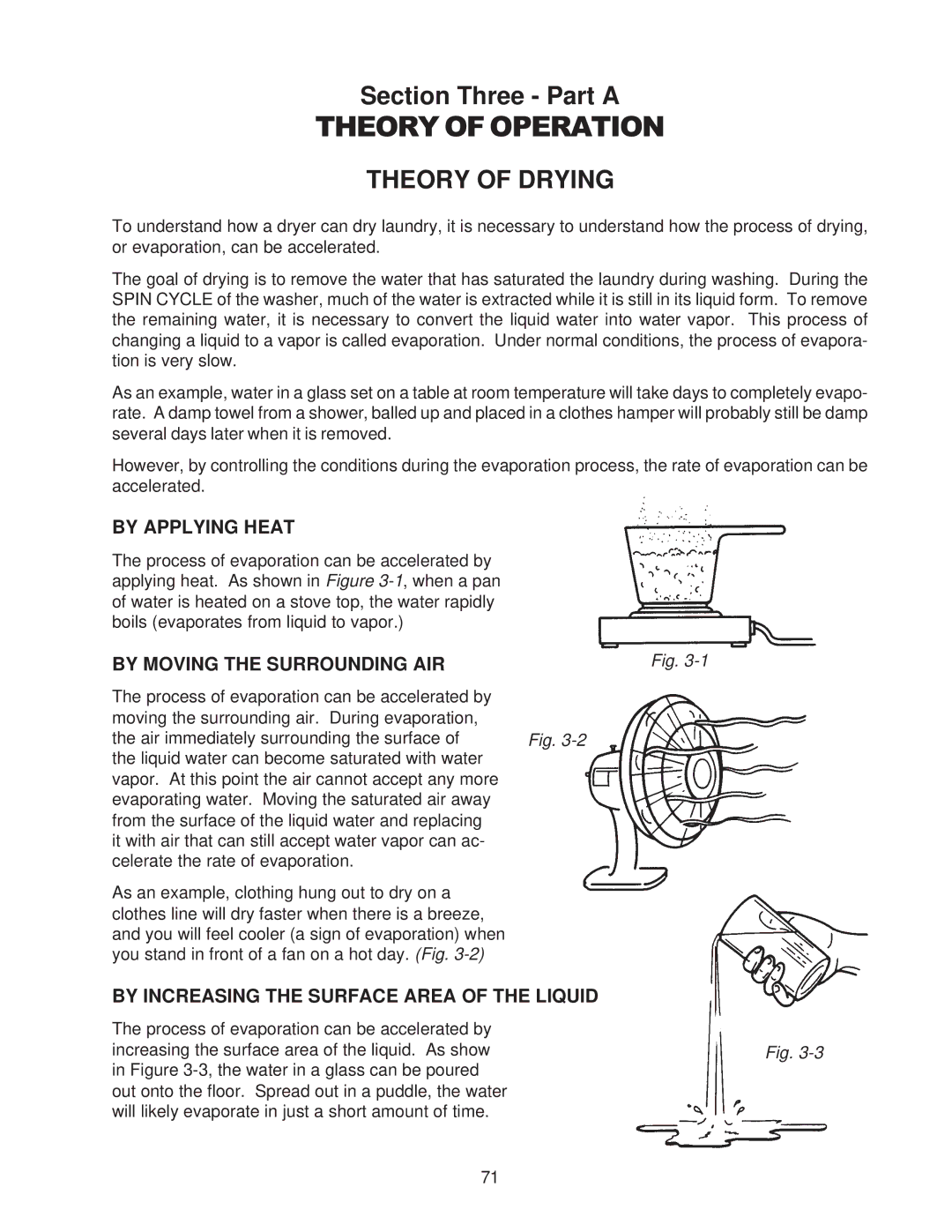
Section Three - Part A
THEORY OF OPERATION
THEORY OF DRYING
To understand how a dryer can dry laundry, it is necessary to understand how the process of drying, or evaporation, can be accelerated.
The goal of drying is to remove the water that has saturated the laundry during washing. During the SPIN CYCLE of the washer, much of the water is extracted while it is still in its liquid form. To remove the remaining water, it is necessary to convert the liquid water into water vapor. This process of changing a liquid to a vapor is called evaporation. Under normal conditions, the process of evapora- tion is very slow.
As an example, water in a glass set on a table at room temperature will take days to completely evapo- rate. A damp towel from a shower, balled up and placed in a clothes hamper will probably still be damp several days later when it is removed.
However, by controlling the conditions during the evaporation process, the rate of evaporation can be accelerated.
BY APPLYING HEAT
The process of evaporation can be accelerated by applying heat. As shown in Figure
BY MOVING THE SURROUNDING AIR | Fig. |
The process of evaporation can be accelerated by moving the surrounding air. During evaporation,
the air immediately surrounding the surface of Fig.
vapor. At this point the air cannot accept any more evaporating water. Moving the saturated air away from the surface of the liquid water and replacing it with air that can still accept water vapor can ac- celerate the rate of evaporation.
As an example, clothing hung out to dry on a clothes line will dry faster when there is a breeze, and you will feel cooler (a sign of evaporation) when you stand in front of a fan on a hot day. (Fig.
BY INCREASING THE SURFACE AREA OF THE LIQUID
The process of evaporation can be accelerated by
increasing the surface area of the liquid. As showFig.
out onto the floor. Spread out in a puddle, the water will likely evaporate in just a short amount of time.
71
